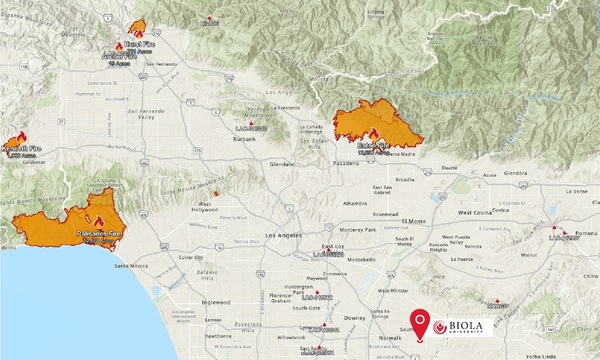Victor Khalil, professor of Arabic at Biola University, shed some light in an interview with Biola’s student newspaper, The Chimes, on the Egyptian uprising; explaining the reason behind the protests and Egypt’s future. Khalil, born in Egypt, is an expert in Muslim ministry and in the languages and culture of the Middle East.
What was the background of the Egyptian uprising? What were the protesters fighting for?
“They were mainly fighting for the standard of living and shortage of food. Unemployment is very high, large numbers of Egyptians were under the poverty line.” “From the spiritual point of view, Christians were praying because of the heavy persecution that came upon them especially in the past 10 years, the church was praying for deliverance. The third would be the media, the television and the Internet that has exposed the system and showed life in the West and in Western countries especially freedom and human rights.”
During the protests the government used the media to try to discredit the demonstrations by saying foreigners started the uprisings. Did this affect the demonstrators?
“It took one day for the protesters to figure out what to do. There were some non-Egyptians in the crowd but the group did not kick them out or hurt them; they wanted a peaceful demonstration. They had already told Iran to stay away; they said, ‘We want to speak for Egypt only.’ The many banners said, ‘We are united.’”
“Then we started to see Christians working with the Muslims. The media was showing pictures of Muslims praying Friday prayers and the Christians were protecting them and shielding them. Last Sunday, there were a few pastors and worship teams that came out and started to sing. One preacher in the group was held up by the crowd and he started to tell them that Isa, which means Jesus in Islam, said, ‘I will bless Egypt’ and he began to read scripture from Isaiah 19, and the crowd started to say, ‘Amen.’ The crowd was cheering him on and he led them into prayer, gentle prayer not Christian prayer, and we saw for the first time, Christians and Muslims working together saying, ‘we are united.’ We have noticed that no church was burned down, no Christians died, and they did not burn the American flag.”
Do you think social media was able to be utilized effectively because a majority of the protesters were college-aged?
“Yes, most of the protesters were college-aged because the cost of education is almost free in the country. Men and women have college education but no jobs. Absolutely, technology played a big role in the organization of the group, in being united, and in receiving news. When the government shut down the Internet, the young people were still able to get on to Facebook; there are ways. The government is not into technology.”
Read the full story including how Biola can respond.
Written by Chimes reporter, Amber Amaya. Jenna Bartlo, Media Relations Coordinator, can be reached at (562) 777-4061 or through email at jenna.l.bartlo@biola.edu.
 Biola University
Biola University
.jpeg)
.jpg)
_(1).jpg)